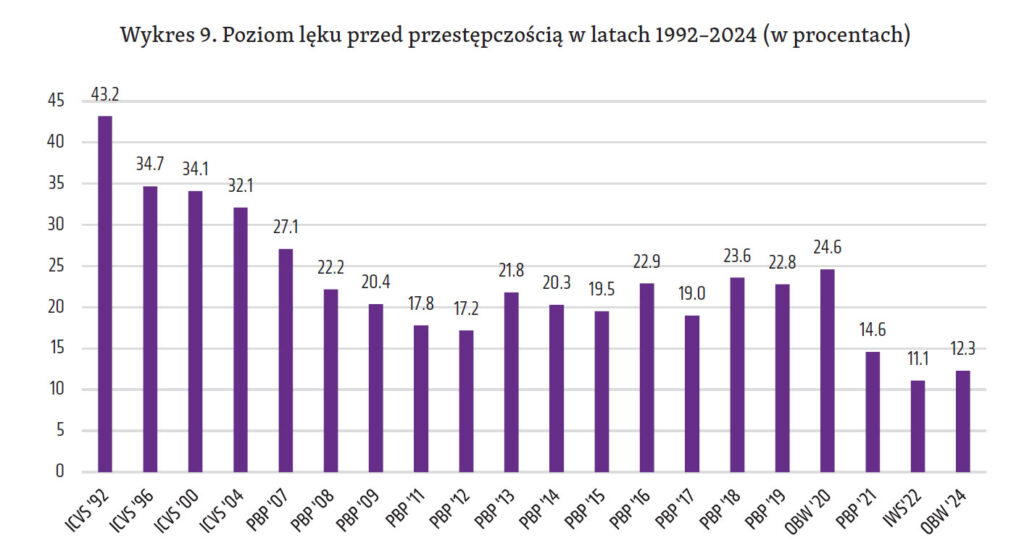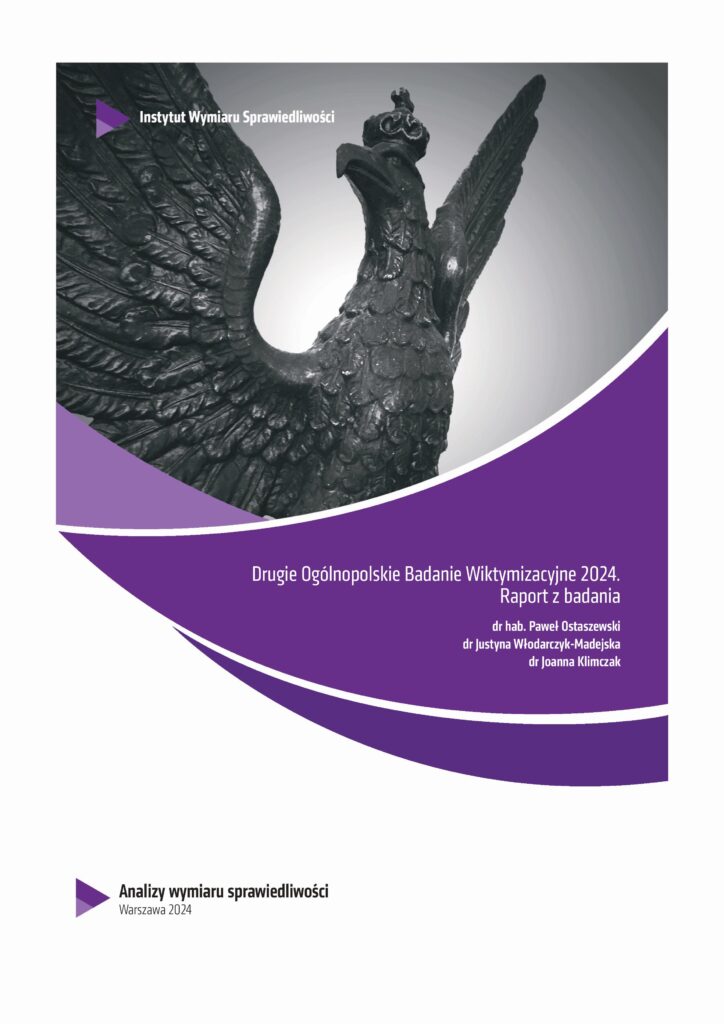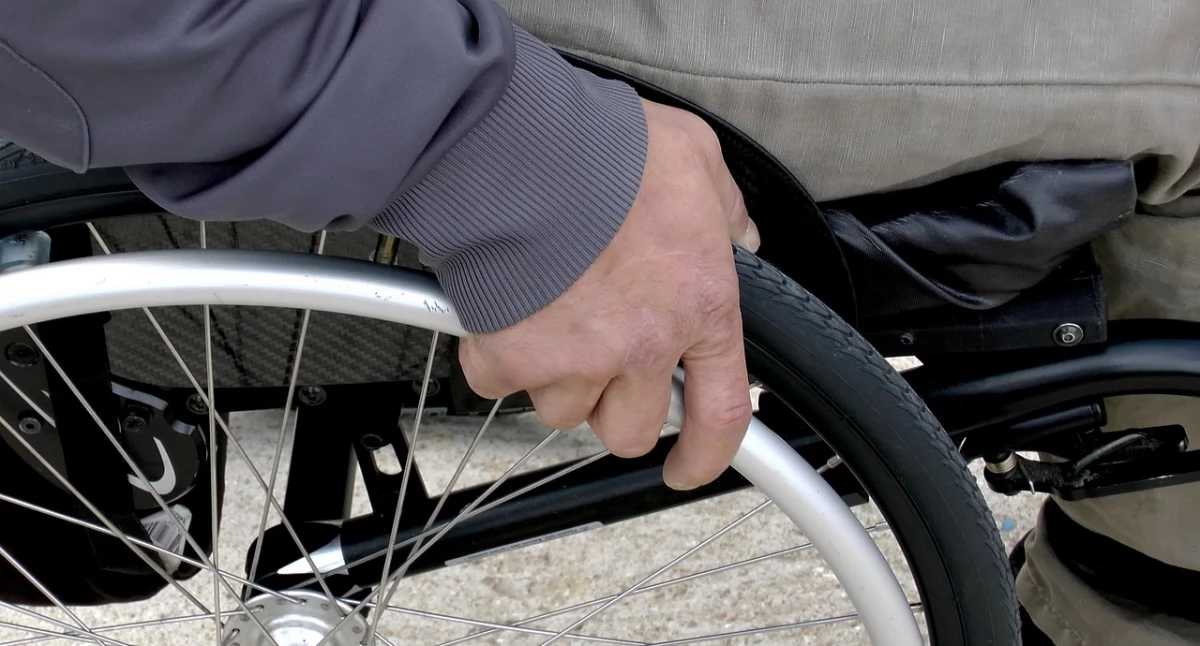"Traditional" crime is falling, criminals are increasingly utilizing fresh technologies, Poles feel safe and do not anticipate to increase repressiveness of criminal law – these are the general conclusions from the victimization survey conducted by the Section of economical Analysis of the IWS Justice.
Conducting victimization investigation is simply a long-standing tradition of the Institute of Justice, dating back to the early 1990s. The latest survey fits not only in Polish tradition, but besides in the global trend of victimization investigation and fear of crime. “Our section’s investigation shows that Poland is 1 of the safest countries in Europe in terms of both the number of circumstantial crimes (e.g. killings) and the level of fear of crime, i.e. the percent of respondents who said in the poll that they fear for their safety,” says Dr hab. Paweł Ostaszewski, Head of the Section for economical Analysis of the IWS Justice.
The first edition of the National Victimization investigation was carried out just before the 2020 pandemic. This year's investigation is his second edition, thanks to which scientists from IWS can compare current results with data both from 4 years ago and with results from erstwhile studies. The latest investigation was conducted from 26 June to 16 July 2024 at the request of the Institute in the form of a telephone survey on a example of 5,000 adult residents of Poland. The aim of the technological task was to estimation the current size of unreported crime by law enforcement authorities, the degree of reporting these experiences, the degree of fear of crime, the social expectations of punishing criminals (punity of society) and the assessments of issued police work and universal courts. - As in the erstwhile edition of the survey, we asked about the victimization experience concerning 13 crimes: car theft; motorcycle theft, scooter, moped; bicycle theft; burglary; robbery; another theft; deliberate demolition of things; beatings; fraud over the Internet; stealing money from a bank account or from a payment card; identity theft; email hacking, social or auction portal account, and persistent harassment - the authors of the study (dr. Paweł Ostaszewski, Dr. Justyna Włodarczyk-Madejska, Dr. Joanna Klimczak) emphasizes.
Popular and unpopular offences
According to the declarations surveyed in 2024, the crimes they most frequently suffered (about 14%) were theft or attempted theft of money from a bank account or payment card and fraud on online purchases. While online fraud besides in the erstwhile edition of the National Victimization survey in 2020 had a very advanced victimization rate (11.2%), stealing or attempting to bargain money from an account or card in 2020 was 1 of the rarest crimes (1.7%). Thus, almost a nine-fold increase in this indicator seems unlikely. The report's authors have explained this with attempts by false e-mails, telephones, and text messages, which have been widespread in fresh years. – Intensification of specified phenomenon occurred in the vicinity of the COVID-19 pandemic and it seems that it will stay with us forever. For criminals, it's more convenient due to the fact that it's harder to detect a form of theft. So it is hard to believe that they would give it up. Therefore, this activity undoubtedly requires reflection in subsequent years – says Dr. Ostaszewski.
The incidence of reporting of crime to the Police is practically inversely proportional to its incidence – most reported were vehicle thefts, beatings, burglaries and robberies – above 50%. The most frequent "new" crimes – email and social hacks, online fraud, bank or card thefts, persistent harassment and identity theft – are only 12% to 23% of cases. There may be respective reasons for this. We may be unaware that the behaviour was a crime, and sometimes we may besides feel ashamed that we clicked on something besides quickly, besides naively, and that was adequate to lose money. In addition, we can be convinced that the study by the Police of this “new” technological action will not reconstruct lost funds, and so it is not worth doing so – the report's authors emphasize.
Questions about the occurrence of alleged conventional crimes, i.e. robberies, burglaries, beatings, thefts and thefts of vehicles, were besides included in the erstwhile 8 editions of investigation carried out in Poland, in which IWS participated. This allows you to track their trends over the past 30 years. In the 1990s, for example, Poles spoke of increasingly frequent car thefts. The car theft rate began to fall decisively from the early 21st century – to the evidence low level of 0.2% in 2024.
Fear of Crime
Fear of crime and fear of safety are crucial elements of victimization research. 1 of the most commonly utilized indicators of fear of crime is the percent of negative responses to the above question, meaning what percent of society fears for its safety during a lonely evening walk. It turns out that in 2024 the vast majority of Polish residents have no concern for their safety, due to the fact that almost 88% feel "very" or "more safely" during the evening walk. specified a fear of danger fell nearly 4 times in more than 3 decades – from evidence 1992, erstwhile it was 43.2%, to 12.3% in 2024.

The analysis of the answers to the remaining questions besides leads to akin conclusions about the essential very advanced level of safety of Polish residents. As many as 94% of the respondents measure their residence as safe and peaceful, and only 29% fear that they may shortly be the victim of a crime. "It is highly likely that the decline in crime during this period has been reflected in respondents' responses. The surveyees besides feel safe in their homes (94% of the declaration), even though 1/3 of them live in an area where they can meet damaged and neglected buildings, e.g. with painted graffiti, and so with manifestations of social disorganization, the report's authors explain.
For about 20 years we have been constantly afraid of the same thing: dangerous drivers (41.4%), further: burglary and aggression from the sober, harassment by aggressive youth. And most of all, we are afraid of terrorist acts and of becoming victims of crimes specified as theft, battery, armed robbery, drug trafficking.
What punishments do Poles expect?
The indicators of punitive attitudes utilized in the Second National Victimisation survey were 3 basic questions: "to reduce crime and improve the safety of citizens, criminal law should be tightened up and punished more severely for crimes, whether it is adequate to consistently punish under existing law and not to tighten penalties". The next question afraid the introduction of the death penalty, the punishment of flogging and the punishment of sending to the labour camp. In the course of the study, the question was besides asked what punishment should be given to “a 21-year-old man, formerly unpunished, who is active in beating and with a knife causes serious injury to another person”. It turned out that an absolute prison conviction for a 21-year-old knifefighter wanted 11% more surveyed in 2024 than in 2020.
On the another hand, the analysis of the answers given to the first of these questions and their comparison with the share of akin responses from 1996, 2018, 2020 and 2022 let to observe the trend of decreasing repressivity of Polish society. In 2024, 40% of Poles wanted to tighten the rules of criminal law and to punish criminals more severely, which inactive seems to be a advanced percentage, but in 1996 and 2018 the share of these answers amounted to 60%. "The survey besides showed that in rule we are becoming little repressive. It only wonders whether there has actually been a change of attitude in this respect, or whether the tightening of the law which took place in erstwhile years has somewhat satisfied the repressive attitudes of any of the respondents – the authors of the study emphasize.
In 2024 45% of Polish society would like to introduce the death punishment into the Criminal Code, while 50% are against it. Support for the punishment of flogging declares only 20% of the population, but already the punishment of sending to the labour camp would want 67% of adult Poles. – The percent of supporters of the death punishment in Poland has been monitored since the late 1980s, erstwhile it ceased to execute it. From that minute on, we saw a crucial increase in support for this punishment - during the top increase in crime, that is, until the first years of the 21st century - followed by a steady, systematic decline in this rate. In 2022, the percent of supporters of this punishment was lowest in the analysed period 39%, and in 2024 somewhat increased to 45%, the report's authors indicate.
Research, prevention, education
The study besides contains indicators of evaluation of the work of the Police and the judiciary, which are very crucial for the evaluation of key institutions liable for the safety of Poles. 3 quarters of Polish society evaluated in 2024. Police as effective in the fight against crime, while affirmative notes of the work of the universal courts have issued only little than half the surveyed.
There may be many conclusions from the studies carried out, but 1 seems peculiarly important. Based on the results, we feel safe due to the fact that only 1/3 of us are afraid of becoming a victim of crime and little frequently experience conventional forms of victimization. On the another hand, we are increasingly victims of alleged fresh crimes, which are not only hard to avoid, but besides highly hard to detect. This means nothing another than that specified acts will seldom see the light of day in the statistic of suspects or statistic of crimes found and judged. Therefore, according to the authors of the report, it is crucial not only to prevent and educate society, but besides to proceed victimization investigation in subsequent years and to monitor changes that we already see to see where they are heading.

















